Texas Rental Agreement

A Texas rental agreement is a legal contract where one party (the “landlord”) lets another party (the “tenant”) use a property in exchange for regular (usually monthly) payments of rent. The terms of a rental agreement must agree with the legal standards of Texas to be valid and enforceable.
Texas Rental Agreement Types
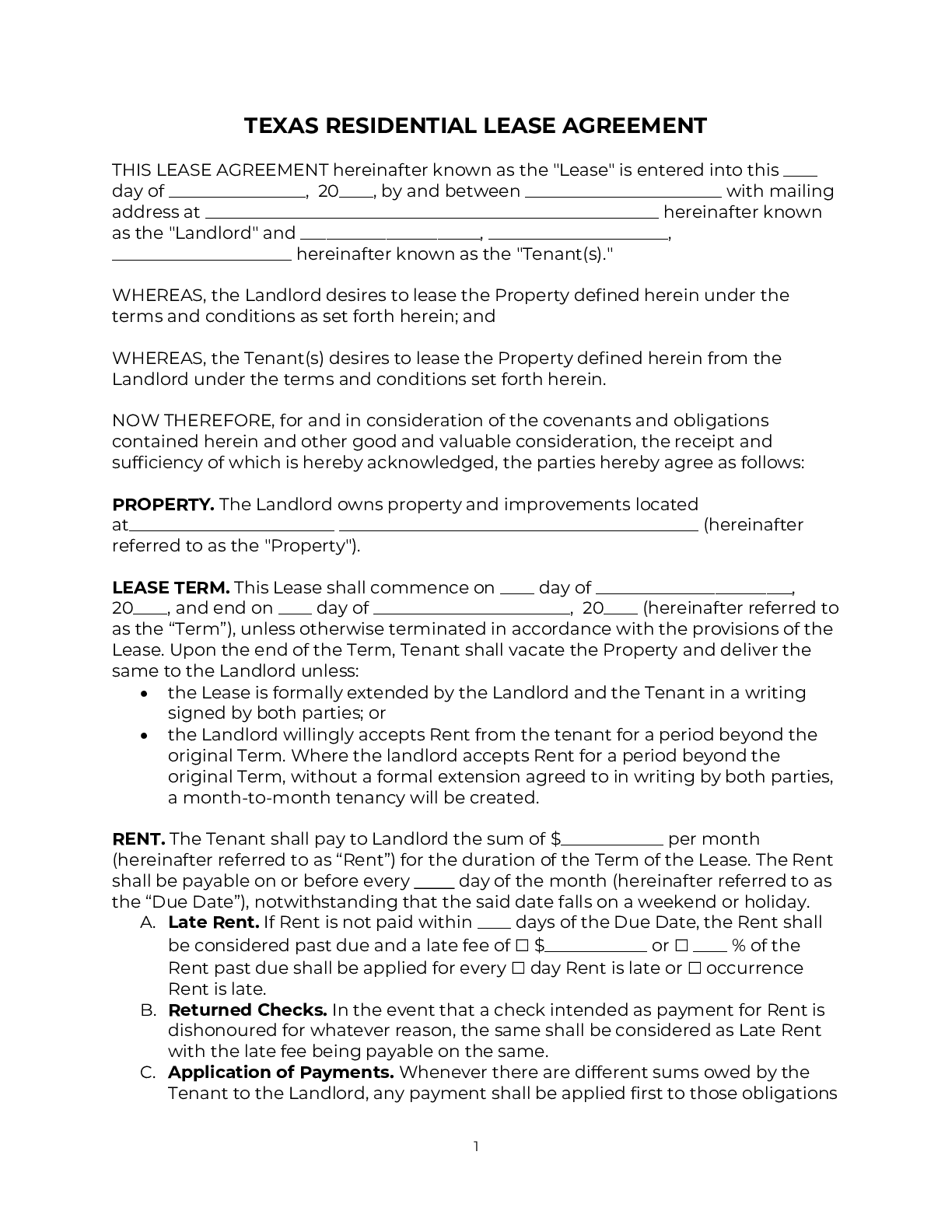
A Texas residential lease agreement (“rental agreement”) is a legal contract for a tenant to rent a residential property from a landlord, subject to terms and conditions agreed by all parties.
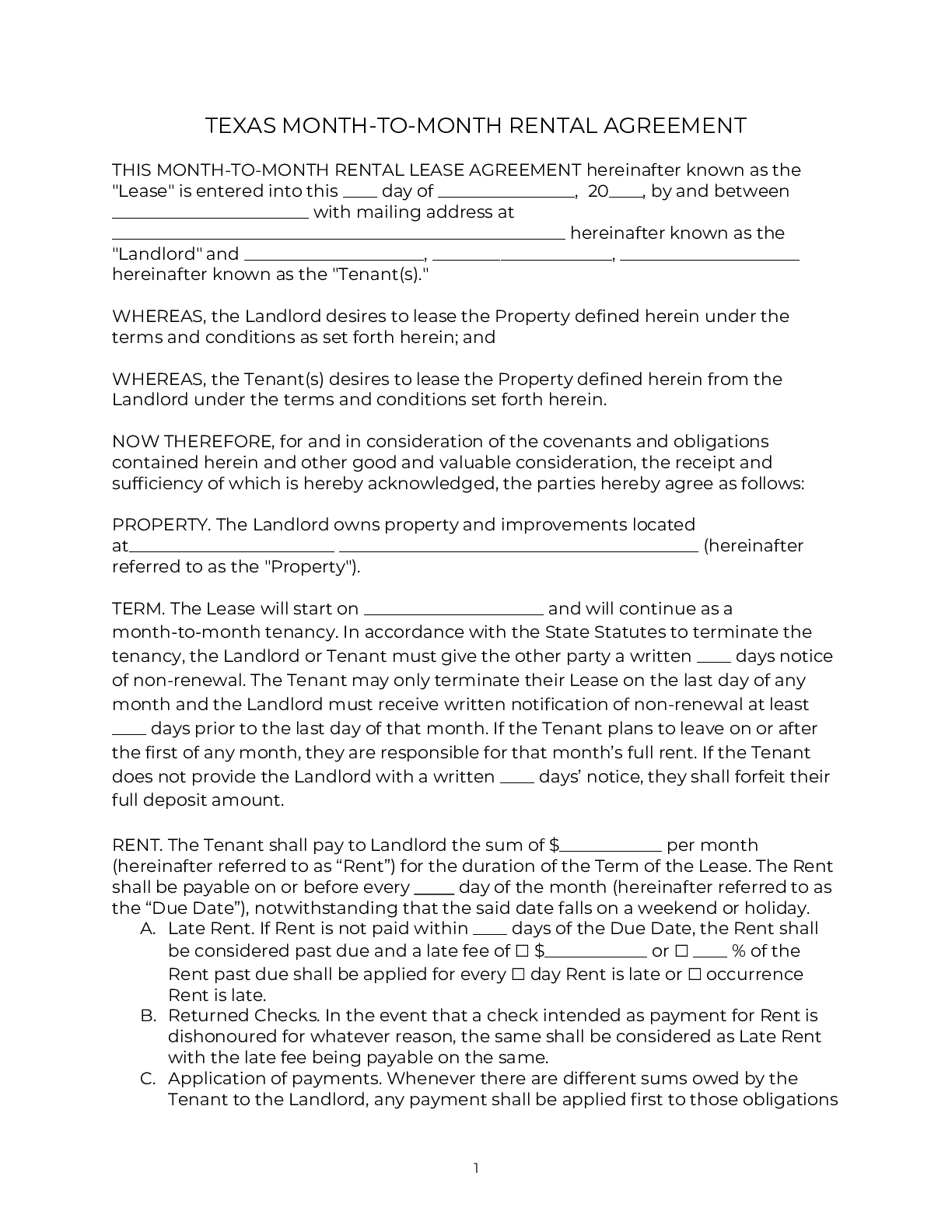
A Texas month-to-month lease agreement is a contract (not necessarily written) where a tenant rents property from a landlord. The full rental term is one month, renewable on a month-to-month basis.
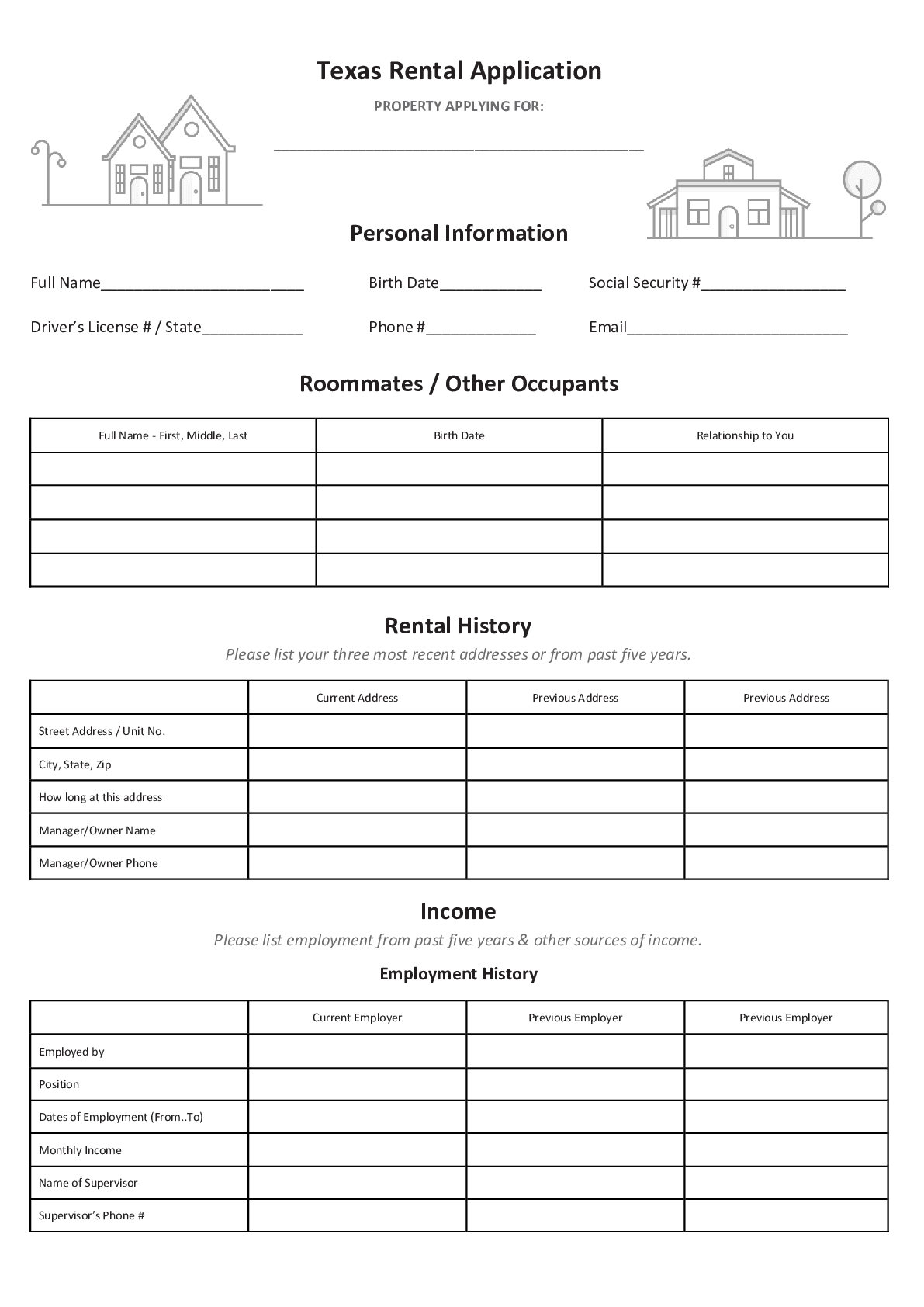
In Texas, landlords may use a rental application form to screen prospective tenants and determine whether they are a good fit for the property and the landlord’s rental terms.
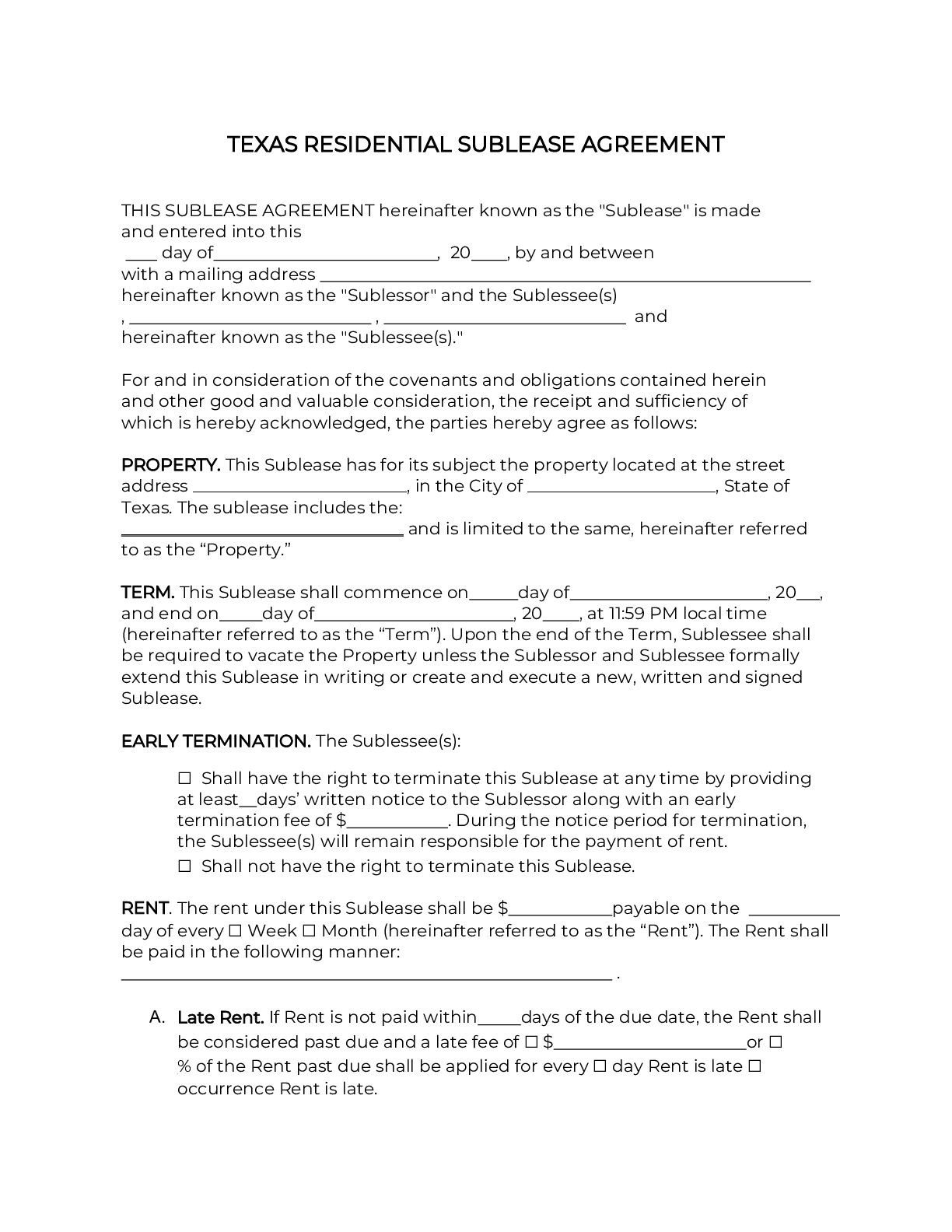 Residential Sublease Agreement" />
Residential Sublease Agreement" />
A Texas sublease agreement is a legal contract where the property rented by an existing tenant ("sublessor") gets rented (“subleased”) to a new tenant (“subtenant”), usually after the landlord gives permission.
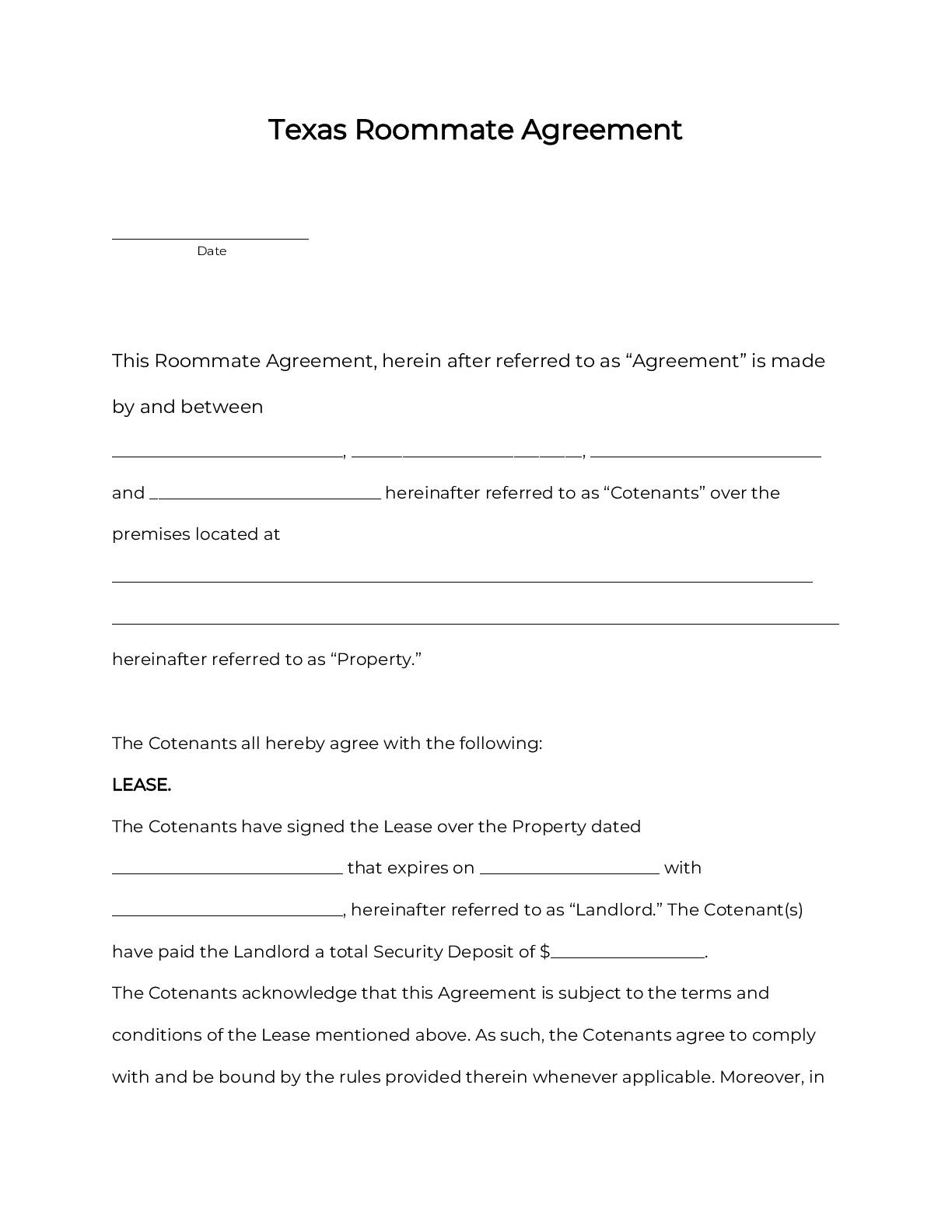
A Texas roommate agreement is a legal contract between two or more people (“co-tenants”) who share a rental property according to rules they set, including for things like splitting the rent. This agreement binds the co-tenants living together, and doesn’t include the landlord.
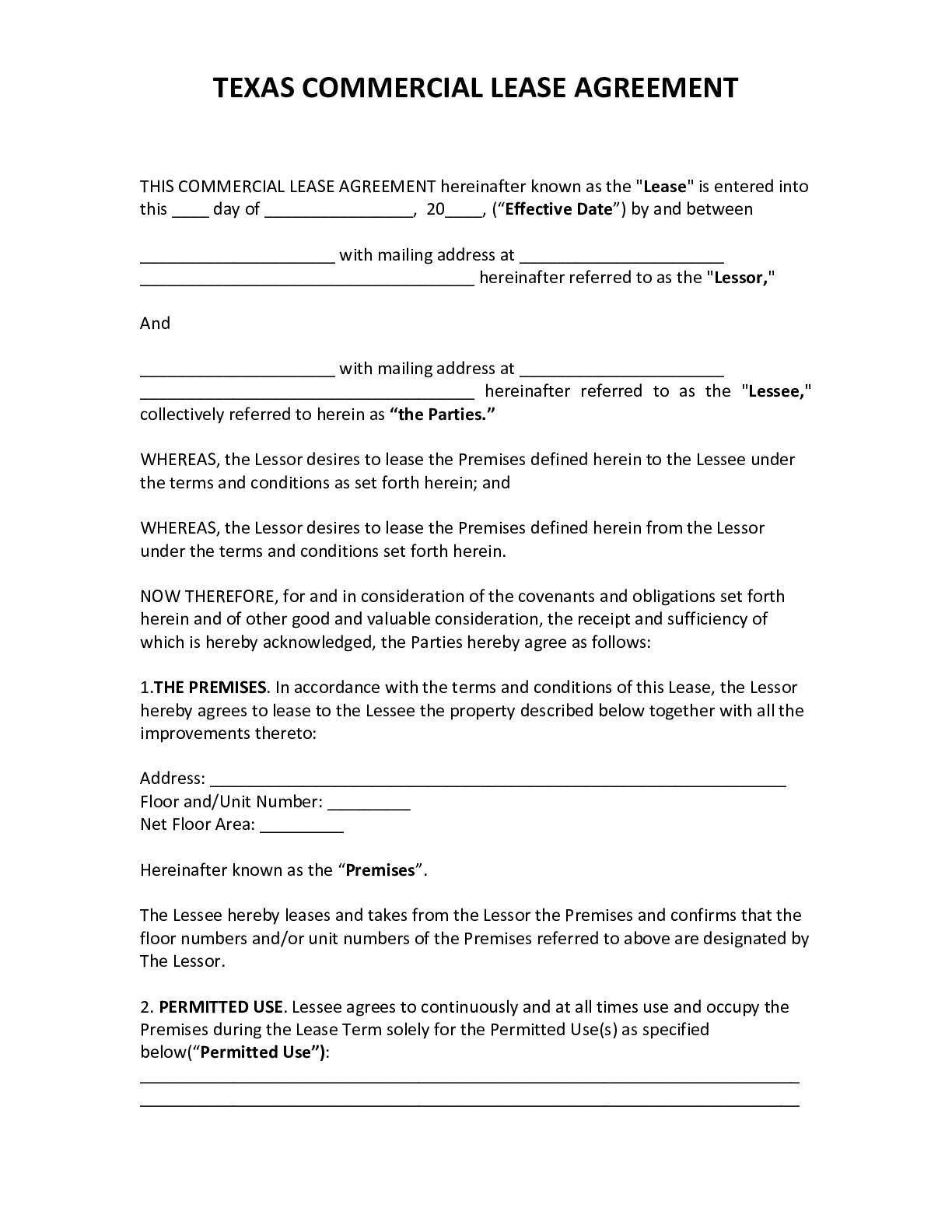
A Texas commercial lease agreement is a contract settingthe rights and responsibilities of a landlord and a tenant business arranging the rental of a commercial space.
Common Rental Agreements in Texas
- Texas Association of Realtors Residential Lease – The Texas Association of Realtors provides this form, for use by members only, for leasing residential property. The form cites Texas state law citations and details automatic lease renewals, repair procedures, and tenant obligations.
- Texas Apartment Association Lease Agreement – tTe Texas Apartment Association provides this template, for use by members only. It is in common use by apartment complexes throughout Texas. It includes many specifics, such as conduct rules for community pools.
- Texas Real Estate Commission Seller’s Temporary Residential Lease – This template is only for use by licensees of the Texas Real Estate Commision (TREC), for a property seller to occupy the property after a sale closing, for no more than 90 days. Unlike most rental agreements, this contract calculates rent payments by day, rather than monthly.
Texas Required Lease Disclosures
- Landlord’s Name and Address(required for all leases) – Texas landlords must provide tenants with contact information for the person(s) in charge of the rental property. This guarantees tenants can pay rent and give legal notice about issues as necessary.
- Parking Rules Disclosure(required for some leases) – Texas landlords who want to set parking rules must provide a copy of the rules along with the lease agreement, for the tenant to sign. The attachment must say “PARKING” or “PARKING RULES” in capitalized, underlined, bolded font.
- Late Fee Disclosure(required for some leases) – Late fees aren’t enforceable in Texas unless agreed in the lease. They may not be charged until two days after the rent is due, and may not exceed 12% (for properties with 4 or fewer units) or 10% (if there are 5 or more units).
- Emergency Phone Number Disclosure(required for some leases) – Texas properties with an on-site management office must provide an emergency phone number in the lease which is available24 hours per day for emergencies..
- Right to Repairs Disclosure(required for all leases) – Texas leases must include a bold, underlined reminder that tenants have a right to request repairs and remedies for habitability purposes.
- Lead-Based Paint Disclosure(required for some leases) – For any property built before 1978, a Texas residential lease must contain a lead-based paint disclosure with an EPA informational pamphlet, plus notice of any lead hazards on the property.
To learn more about required disclosures in Texas, click here.
Texas Landlord Tenant Laws
- Warranty of Habitability – Texas landlords must rent out only habitable property. This means providing hot water and smoke detectors in all units. Additionally, landlords must, within seven days of proper notice, repair any condition not caused by tenant misuse which affects health or safety on the property. Failure to make timely repairs might let a tenant break the lease, repair and deduct, or sue the landlord.
- Evictions – Texas landlords may evict for a number of reasons including, but not limited to failure to pay rent, lease violations, or illegal acts. The amount of required advance notice depends on the type of eviction. Most evictions in Texas take four to ten weeks.
- Security Deposits – Texas does not currently cap security deposits. However, a landlord must return any unused portion of a security deposit within 30 days after a lease ends.
- Lease Termination – To break a month-to-month lease in Texas, a tenant must give at least 30 days of advance notice. To break a fixed-term lease, a tenant must prove an extenuating factor. These include active military duty, uninhabitable property, landlord harassment, domestic violence, sexual assault, or stalking.
- Rent Increases and Fees – Texas landlords have no limit on the amount of a rent increase or a service fee, other than that they be “reasonable.” The state does not require advance notice of a rent increase.
- Landlord Entry – Texas landlords must provide advance notice before entering a rental property. The precise amount is not standardized by law. The lease usually sets notice requirements and emergency entry policies.
- Settling Legal Disputes – The Texas small claims court system only accepts cases valued at less than $10,000. Unlike some states, small claims in Texas allow attorney representation if desired.
To learn more about landlord tenant laws in Texas, click here.
City-Specific Lease Agreement Templates
Many cities in Texas have specific required and recommended disclosures. Here are major cities with residential lease agreements that differ from the state template:






 Residential Sublease Agreement" />
Residential Sublease Agreement" />
